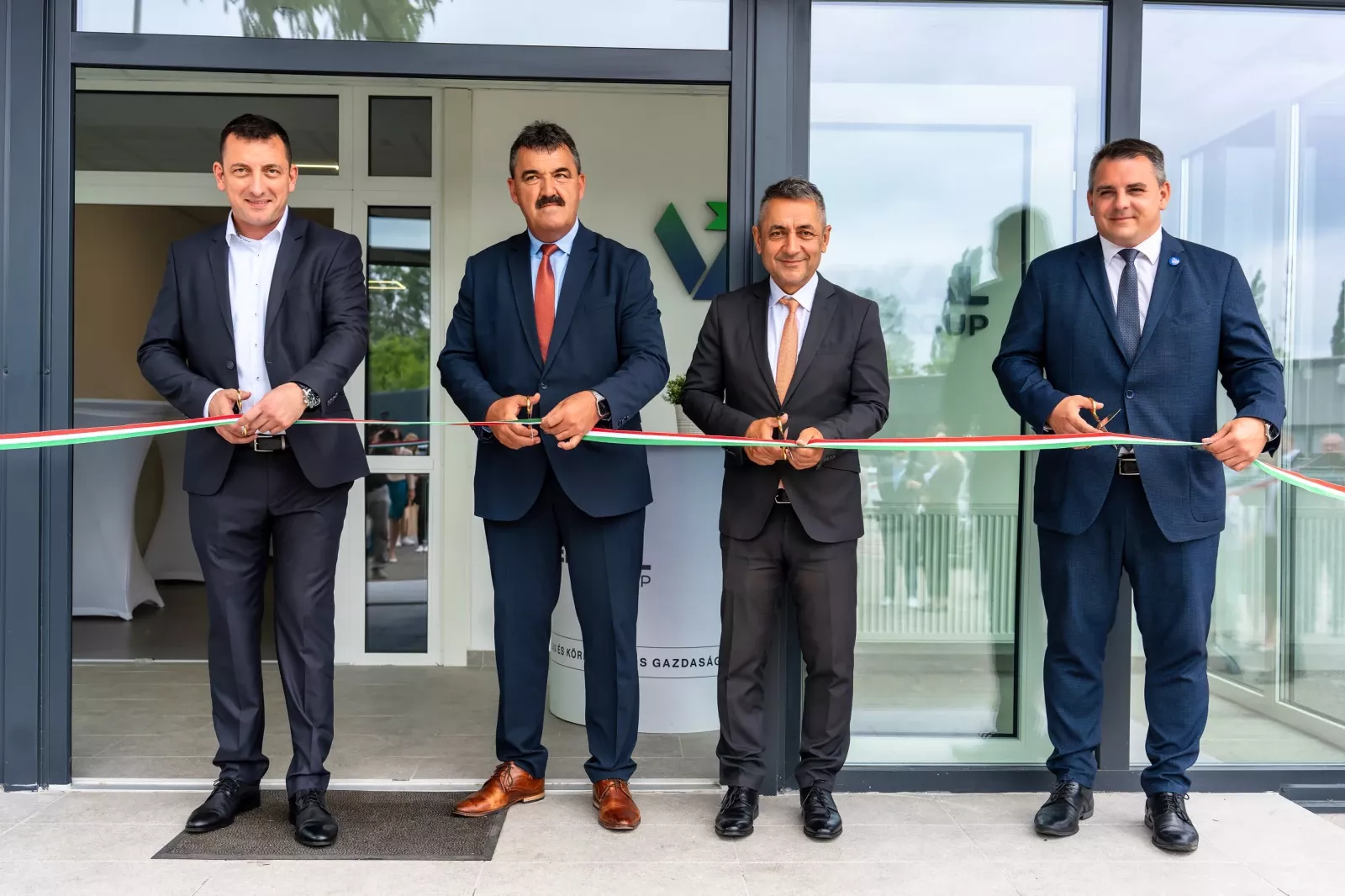
VERTIKAL Group Plc., listed on the Budapest Stock Exchange, handed over its HUF 2.5 billion technological development in Dombóvár at a ceremony. The event was attended by János Potápi Árpád, State Secretary for National Policy and Member of Parliament for the region, Szilárd Pintér, Mayor of Dombóvár and Kornél Ferencz, one of the main shareholders of VERTIKAL Group. The investment will significantly reduce the environmental impact by modernising the production technology and minimising the specific energy consumption per unit of product, and will enable VERTIKAL to be among the first companies in the Hungarian waste management market to implement the concept of circular economy.
VERTIKAL Group Plc. started the development of the Dombóvár plant in the spring of 2022, with the aim of reducing the amount of purchased plastic raw materials, which has been used to a large extent so far, and to use more recycled materials produced with its own technology in the production of its own products. In developing this technology, VERTIKAL has implemented the collection and recycling of materials, most of which would be disposed of essentially without recovery and whose disposal would have a significant environmental impact.
Details of the investment
During the project, the company carried out a total of 4,580 m2 of refurbishment and the conversion of the property has led to a change of function in the buildings, which now serve production in a modern and energy-efficient environment. In addition, VERTIKAL installed a hybrid solar PV system with a capacity of 377.52 kWp on the buildings, so that renewable energy covers the energy needs of the economic production processes and the buildings within the plant. In addition, the company has added 3 Haitian injection moulding machines to its machine park, which have been purchased to make a technological change that reduces the unit cost of the own product manufactured by using energy more efficiently, achieving a production cycle time at least 20% shorter, thus significantly increasing the price competitiveness of the products.
The development will significantly support the company's wide range of activities, unique in the domestic environmental management market, combining research and development, environmental management, plastics processing and manufacturing activities, with a part of the products being reintroduced into the environmental management and then into the raw material production and processing cycles at the end of their life cycle.
The implementation of the technological development in Dombóvár reflects the fundamental vision of the VERTIKAL Group: to make the greatest possible contribution to environmental sustainability through an integrated business approach and expansion of activities. The completion of this project is also a major milestone in VERTIKAL's life and a key milestone for further growth. The development also links the processes of the environmental management and manufacturing businesses, further strengthening the domestic presence of the circular economy.
The project in Dombóvár was implemented under the Széchenyi Plan Plus programme with the support of the Hungarian Government and the European Union: the company initiated the project under the call for proposals of the Economic Development and Innovation Operational Programme Plus "Green National Champions" (project ID: GINOP_PLUSZ-1.3.1-21-2021-00009). The investment was made with a budget of nearly HUF 2.5 billion, of which more than 50 percent is self-financing and a bank loan, and HUF 1.115 billion is conditionally reimbursable EU funding.